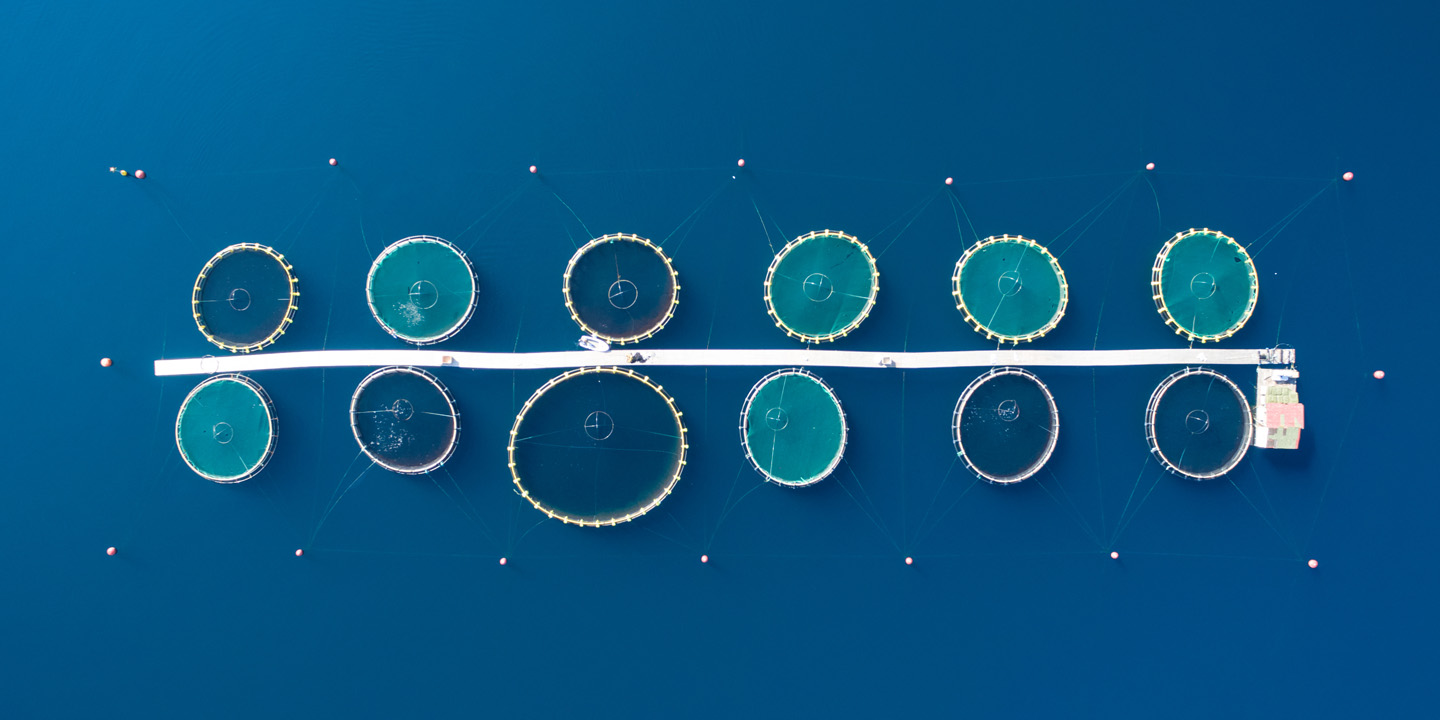
Our hunger for protein is pushing the boundaries of intensive animal farming and arable land exploitation. As population growth maintains its course to hit 9 billion by 2050, a crossroad lies ahead: continue farming at an unsustainable rate or embrace more viable alternatives. We need to make decisions on how we feed our global population without creating long-lasting and irreparable damage to our planet.
Whilst great technological and scientific advances are developing alternative ways to produce food, more immediate solutions are required.
For many years now, strong arguments have been put forward for farming the blue instead of the green. Consensus is that fish farming offers a sustainable and much more environmentally friendly alternative to most other farmed proteins.
Over the past 40 years, the aquaculture industry has experienced major transformations and boasts an impressive and consistent annual growth rate of 6%. New investments in aquaculture are cropping up all over the world, but Asia remains the production powerhouse.
However, Asia is marred by many challenges that impact our ability to maintain a stable and sustainable seafood supply.
These include:
- Insufficient governmental management, oversight and planning
- Volatile climatic conditions
- Ever present natural catastrophes
- Uncontrolled risk of disease
- Slow take-up of new farming techniques and technology
Farmed seafood — if done right — can become a primary source of protein that is efficient, environmentally friendly and sustainable to produce. More needs to be done to encourage investment and development of the aquaculture industry!
I am a Marine Scientist with a passion for aquaculture and I want to see the industry prosper by adopting logical, practical and beneficial techniques to improve farming. With Asia’s strong foundations, the region is in a good position to stay on course and remain as the aquaculture production powerhouse of the world.
Much work, however, is required to understand and manage risks in aquaculture production—a complex field which can often be misunderstood and underestimated.
Good advice and a few simple improvements can make a world of difference. I am here to help, and coupled with our Food and Agribusiness team’s experience of working with the aquaculture industry in Asia, we can offer some valuable tips on what you could do to better manage and protect your farms.